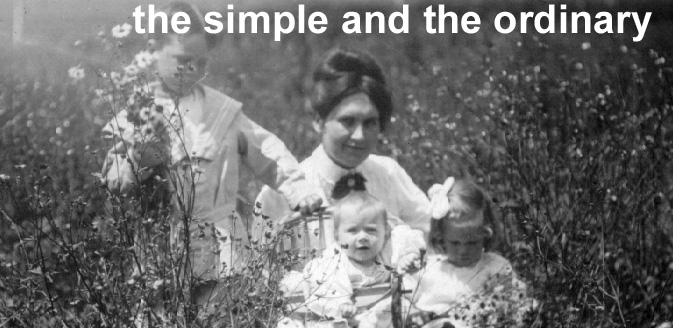Sometimes one of the kids - okay usually Harry - will do something to Pippi - say, for example, kick her in the leg. When she screams that he kicked her in the leg he will say "I didn't mean to."
That may technically be true. But if she is standing in front of him and he swings his leg out in a kicking type of motion there is a certain expectation that his leg might connect with her - and therefore she would be kicked by him. (This can translate to any number of actions that little brothers can commit against big sisters.)
So my question to him at that point is "Did you try NOT to?"
Because the way I see it it's not enough to say you didn't mean for the bad thing to happen - you also have to be trying NOT to do that bad thing. Or maybe even trying to do something good. This works from everything like being nice to your sister to driving a car. "I didn't mean to hit that other car" is all well and good - but can you say you were doing your best to NOT hit it? Hopefully yes - but isn't that the bigger question.
The corollary to that is that although we want to always forgive transgressions doing something bad and following it up with puppy dog eyes and "I'm sorry," isn't really sufficient. An example of what I mean.
Me: Harry go put your shoes on so we can leave for church
Harry disappears into his room - where presumable shoes are being put on his feet.
Me (five minutes later opening his door and seeing him reading a comic book - no shoes on feet): Why didn't you put your shoes on? We have to leave for church.
Harry (with puppy dog eyes): Oh. I'm sorry. I forgot. (the fact that he will grow up to be the absent-minded professor is the subject for another post.)
Repeat scenario with any number of variations throughout the day and suddenly "I'm sorry" doesn't seem like enough. You have to TRY to be good in the first place - not just say a magic word afterwards.
He's eight. He'll learn.
But do we grown-ups sometimes do that too? When we say "I didn' t mean to" can we honestly say "And I wasn't trying to"? Do we say "I'm sorry" as a way of covering up for any transgression we might commit - without going to any great lengths to not make those transgressions in the first place. Do we say "I'm just being honest" or "blunt" and figure that will forgive all hurts imposed?
So for today I'll try to remember the lesson I try to teach Harry: It's not enough to not intend to do something bad - you have to be trying NOT to do something bad - in fact maybe even trying to do something good.

6 comments:
Yes, a hard lesson to learn. One of the favorites around here is: "It was an accident." Well, if you didn't actively try to stop X, then it really isn't an accident :)
It is a hard lesson. Growing up in my house, there was no second chance or question asking after anything. There were two rules of thumb in the house. First, if a parent said to do it you had one chance to do it, or there was punishment of some sort. It didn't even matter if there was an actual good reason something wasn't done in a timely manner. Second was that if you went after a sibling, even by accident, that sibling was allowed to retaliate without fear of punishment. It is surprising how many less accidents there are when the aggressor finds out that there is going to be a heavy kick coming back their way. If it could be proven, and with five kids, there were always witnesses that you deserved what you got, not only did you get clocked you also got the punishment for starting the whole thing. My parents didn't have problems because just saying I am sorry didn't cut it. Part of the problem I think is that there is way too much reasoning and not enough consequences today. Unfortunately, the older you learn that the less friends and more problems you have later in life.
It reminds me of when I give my 7-year-old something fragile to carry (at his request). I say, "It's really important that you don't drop it. There are no second chances."
That's a good idea PJ. I bet your child is really careful with something when there is no second chance. I was also reminded of my friend who made her four year old recite "There are consequences for my actions and many times no second chances." I thought at the time geez she is only four. Now, seeing what a great young woman she has become, realize that it was moments like that the foundation for a great person were laid.
You have good timing with this post. I am watching the Phillies game and the Phils pitcher hit Manny Ramirez. Well, there was retaliation against Jayson Werth. Well, the announcers said that Blanton didn't mean to hit Ramirez....the retalization was the reminder to try harder the next time not to hit anyone on our team.
Tough lesson, but so important. :)
Post a Comment